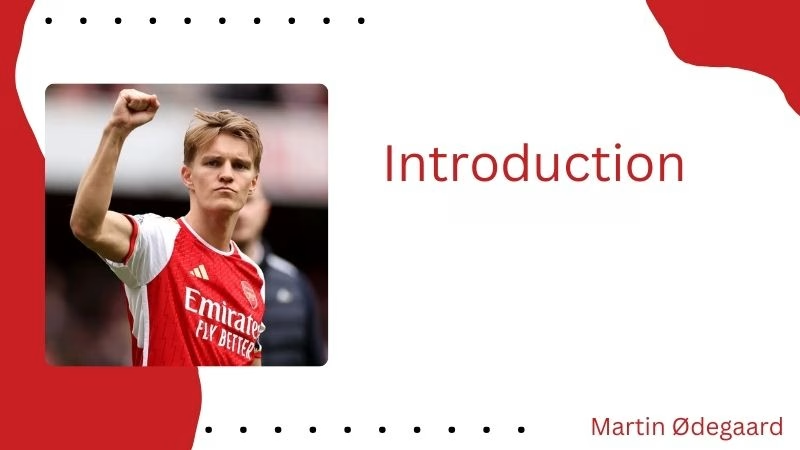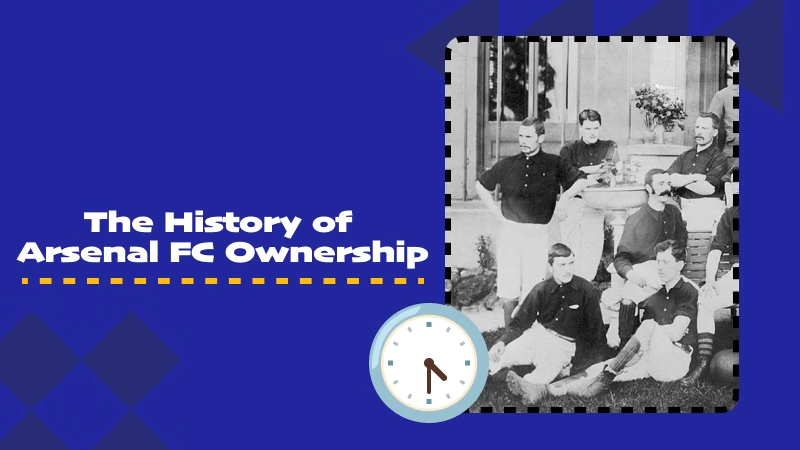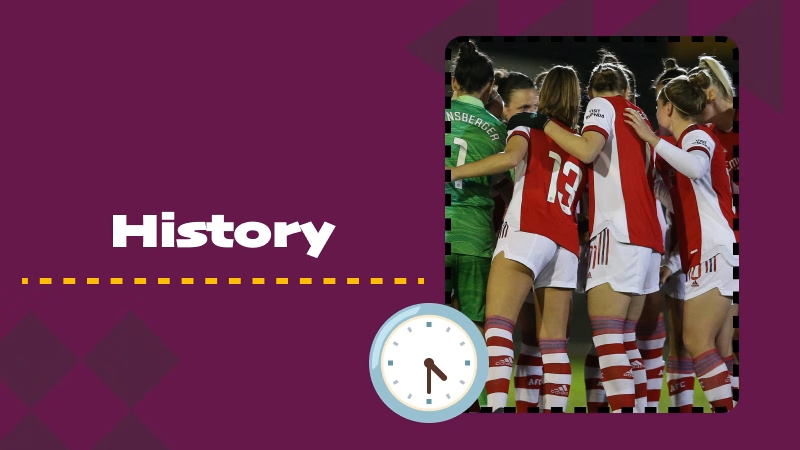Arsenal Manager: The Heart and Soul of Arsenal FC
Introduction
Wassup, my football aficionados? Today, we take a beat and explore the realm of Arsenal FC history’s most incredible managers. Arsenal writers Mean Lean dissects the qualities that have made five Arsenal managers stand out while in charge of one of English football’s most successful clubs. Whether it was a legendary tactician or an innovative strategists, the Arsenal manager has always been at the heart of shaping club identity and pushing for success. Therefore, let’s go back down memory lane and reminisce the ups-and-downs; pains and glories of Arsenal managers.
Arsenal FC Managers Through the Ages
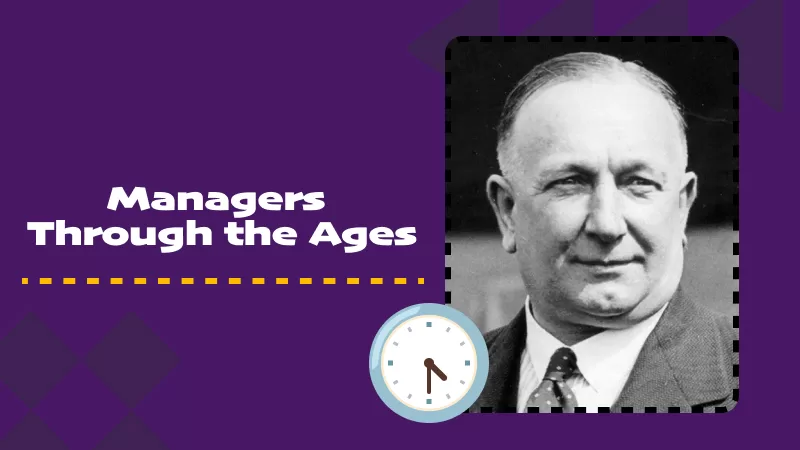
One of top flight powerhouses when it comes to wealth and squad depth, the Arsenal FC was founded in 1886; subsequently they have had a mesmerising list of managers. All of them with their style, each enriching the history of a club. Let’s now take a look at few of the `hotshot` generals who have marked their name from olden days untill recent times.
Early Pioneers
Thomas Mitchell was appointed the first team’s manager in 1897. While his tenure lasted for only two years, he paved a way for leaders that followed. Enter Herbert Chapman in the 1920s, a man he very well could be the most instrumental of all Arsenal coaches. Chapman was the first modern managerto introduce new techniques both on and off the field into English football. He led Arsenal to win their first major titles: the FA Cup and League title.
Chapman’s impact on Arsenal is immeasurable. It was he who introduced the revolutionary WM formation and it as well, that instilled a focus on strategy which paved way for incoming triumphs. In two halves of an hour only anything can happen and it is impossible to predict the league winnersI have written about this before, but hell – if we get Two Halves Of An Hourand Last Four Games Sort Your Shit Out Again- how that format might shake out with the Gunners in their best form at last…Chapman brought Arsenal our first League Titles & FA Cup – he remains a pioneering figure.
Post-War Era
In the post-war period there were a number of managers who played their part. Arsenal ended their wait in 1971 with an iconic double won overseen by Bertie Mee, who had been appointed four years earlier. The era of discipline and defensive solidity, which would serve Arsenal well for decades.
The Wenger Era
Then came Arsène Wenger in 1996, the man who defines modern Arsenal. Intimate relationship where the his 22-year term completely changed our Football Club, With the advance of attacking football, youth development and scientific training methods heralding unprecedented success. During his spell in north London, Wenger won three Premier League titles and seven FA Cups – leading the club to their famous ‘Invincibles’ season of 2003-04 when they went through a premier league campaign unbeaten.
The impact Wenger has had on Arsenal and English football as a whole is immeasurable. He rarified purchase references to his nutrition, fitness and sexy-football restructuring of the football landscape in the Premier League. Wenger was the master at finding young talent and nurturing it into some of the best players in world football. Arsenal won the Premier league title and FA Cup many times during his reign, consistently among England’s elite.
Current Arsenal Coach Mikel Arteta
So here we are Ashburton Grove at the man in situ Mikel Arteta. Arteta, who was born in Spain and enjoyed a lengthy playing and managerial career that included spells with Paris Saint-Germain, Rangers, Real Sociedad and Everton before he joined Arsenal as a player in 2011. With his tactical nous and leadership abilities on the pitch, stepping into coaching was a no brainer.
From the Background to Philosophy of Arteta
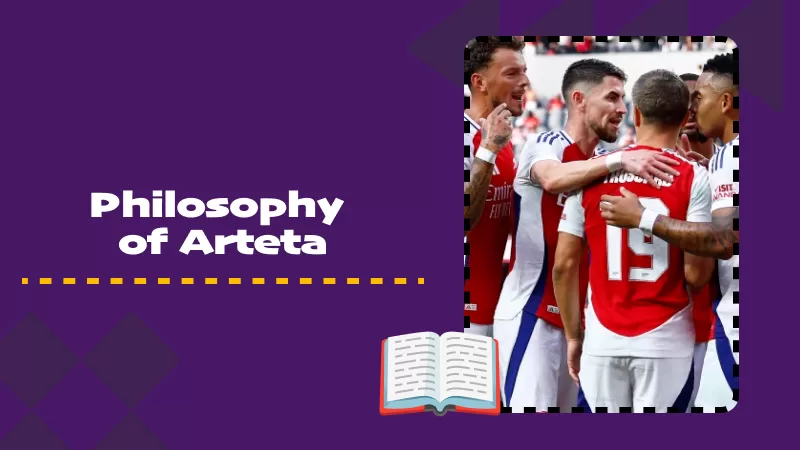
Arteta graduated from a player to his first major role in coaching, learning the ropes under Pep Guardiola at Manchester City following retirement. He went back to Arsenal as the manager in December 2019 As a coach, I think Arteta wants us to play with possession-based football and high pressing as well adhesive attacking-minded football. His style is deeply rooted in Guardiola’s methods, but with a certain tweak to make it fit Arsenal strengths.
Achievements and Challenges
Mikel Arteta has had some highs and lows from his tenure. Arsenal won the FA Cup under his leadership in 2020, giving an idea of what could lie ahead domestically. Nevertheless, the Premier League is so competitive that fighting to finish in the top four every year won’t be easy. Seen as an attempt to balance youth development with experienced signings, Arteta is building a squad he believes can compete at the very top.
Arsenal have become more defensive under Arteta since he moved to a 3-4-2 formation Integrating the older heads with his new breed is central to what he’s doing for the future of this club.
Mikel Arteta Coaching Style and Tactics
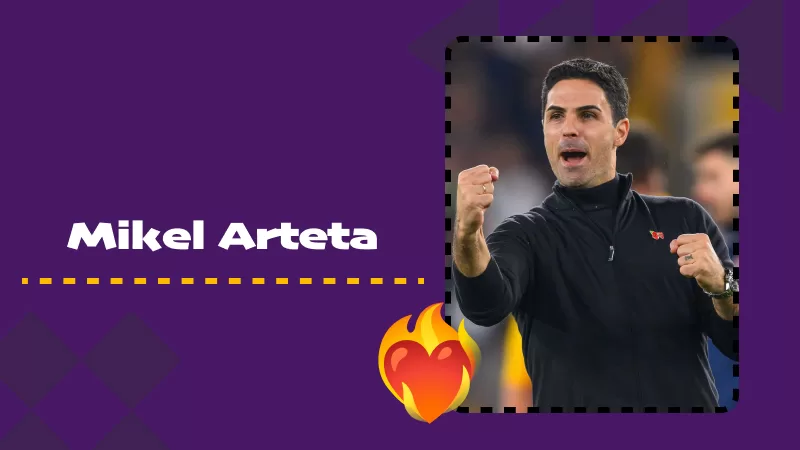
Preferred Formation and Playing Style
Arteta typically uses a 4-2-3-1 shape which offers very natural movements between the defensive and offensive phases. His pass-and-move style and possession based philosophy with rapid passing combinations set out to establish ball control, thereby increasing the chances of scoring goals. The team plays a high pressing style with machine-like precision forcing opponents into errors and converting turnovers to quick counter-attacks.
Tactical Implementation
Arteta’s tactical masterclasses in individual games have been there to see. In added phase-time for instance v Manchester City, Arsenal’s use of pressing and defense in numbers almost silenced their attacking intentions. His adeptness at devising formations centred around the opposition really shows his in-game knowledge of football.
Arteta’s coaching philosophy is built around possession-based football, a high pressing game and fluid attacking play. This is a very Guardiolan approach, albeit modified to make the most of Arsenal’s special set-up.
Famous Former Arsenal Managers
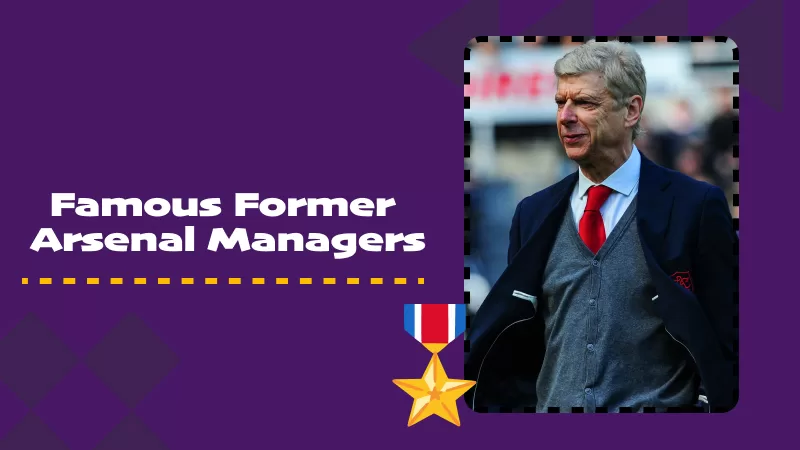
Herbert Chapman
I personally believe in seven years to come, Chapman’s legacy will be much vaunted long after all of us have shuffled off this mortal coil. He introduced the WM formation and strategic thinking that paved the way for his future success. Chapman, whose innovation helped Arsenal to their first league titles and the FA Cup 1930 (pictured) is widely regarded as a revolutionary
George Graham
The Graham years, 1986-95/ defensive toughness The so-called “Back Four” undergirded Arsenal’s success with Dixon, Adams, Bould and Winterburn all earning status as Gunners legends. Graham brought the Premier league title to Highbury twice, as well as an FA Cup and a European Cup Winners’ Cup because of his ability to create teams in his own image.
Arsène Wenger
The pair are two of the best to have ever graced English football and Wenger’s impact on not just Arsenal but also Englisg football in general cannot be underestimated. His attention to detail around nutrition, fitness and good football changed the look of English top-flight forever. Wenger’s talent in unearthing and nurturing young players into stars seemed unmatched. In his time, Arsenal were always in the mix at the business end of seasons and claimed several Premier league titles and FA Cups.
How Major a role does Manager play in Determining success of Arsenal
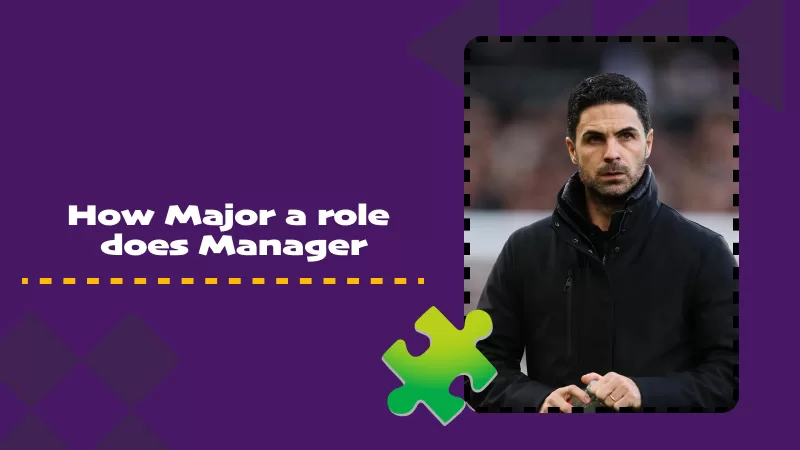
Managers are the most important; they design how a club should succeed. Arsenal have had a unique style of play and identity left by each manager. And it was Wenger’s attacking philosophy and Chapman’s innovative tactics that laid out quite the story of influences down the time span in Arsenal club.
Grow the talent Pool
The older and more experienced the player, then in general it makes less of a difference whether they are playing for somebody with that elite reputation – unless also that Another Way is part of their game-plan. Or if class-rooms have been substituted by fair-ground rides(!) A young up-and-comer has infinitely much to gain from somewhere like United; even just one good season instead obscurity can last well over ten years… One of the most effective exponents of that system was Wenger, who is credited with unearthing a series of young talents such as Thierry Henry, Cesc Fabregas and Robin van Persie during his tenure. Arteta is doing the same, developing talents such as Bukayo Saka and Emile Smith Rowe.
When Managers Want – Command vs League status clubs
From on-field tactical choices to off-the-field player acquisitions, elected and appointed decision-makers are the tent-pole factors for any club’s success. Shift to disciplined defensive structure has solidified Arsenal under Arteta His mixture of the experienced with future stars is vital for the progression of United going forward.
The future of Arsenal FC coaching
All the same, looking beyond their next boss – or even two bosses hence – there exist challenges as well as opportunities on Arsenal’s managerial horizon. Arteta is building the platform, but that elusive winning formula and silverware remains.
Potential Successors
Speculation is inevitable for potential successors although Arteta continues to concentrate on his vision. We are often talking about names like Patrick Vieira, Julian Nagelsmann when it comes to the next Arsenal coaches. Stepping into the breach will be a challenge for any successor, with Arteta having left others to build upon and steer towards new heights.
Challenges and Opportunities
The Arsenal coaches of the future will find it difficult to cope in an evermore ruthless Premier League That said, San Siro has a rich history and rabid fan base for which there are plenty of winning machinations to be found. At the end of it, is how they blend tradition with Innovation seems to be their key as they will always focus on nurturing local talent while competing for top honours.
Qualities Needed for Success
An Arsenal coach perfected at balancing tactical acumen, leadership and talent nurturing. Keeping step with the demands of modern football and at the same time honouring a club steeped in history is an almighty task to take on but, if you can manage it correctly, then walking into such a challenge armed by one or all three of these traits would be manna from heaven.
Conclusion
The history of Arsenal coaches serves as a testament on the vital role they play in football. Every manager, from Herbert Chapman to Mikel Arteta has played their part in continuing the Arsenal legacy. But, as ever really and at the same time crucially for Arsenal, what does this all lead to next? For this reason alone, the future of any club-its success on and off the pitch-is so tightly bound up with their manager.
If you want more from this series, thanks for reading/watching. Leave any of your own thoughts in the comments below and feel free to get involved with fellow fans. Continue the conversation on social!



